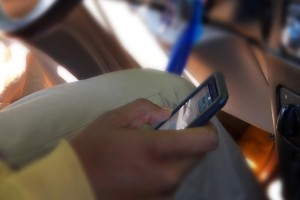For years, educational campaigns have focused on teaching children and teens not to get in the car with a drunk driver. These campaigns have worked to reduce instances of drunk driving in Hollywood, Homestead, and other communities across Florida and across the country.
However, some experts say these efforts do not go far enough, especially with distracted driving being such a concern right now. A distracted driver can be just as dangerous as a drunk driver. In fact, studies have shown that distracted drivers have slower response times and similar accident rates as inebriated drivers.
Minors need to hear the same message about distraction as they have been hearing about drunk driving. Here are some ways you can start this conversation with your children:
- Start early: Even young children get into cars with potentially distracted drivers all the time. Start having the conversation about distraction and its dangers while children are young, so the message gets through.
- Define the issue without scaring children: For younger children, “distraction” might be a big word. Using words like “not paying attention” can be helpful. For pre-teens and teens, distraction may be something they associate with other people; many young drivers overestimate their ability and underestimate their distraction. Give specific, concrete examples of what distraction is. Include examples such as hands-free texting and calling, any talking or texting on a device, daydreaming, and any other less-obvious forms of distraction.
- Help children understand the “why”: Children need to understand the consequences of distracted driving. Luckily, there are many resources which can help, including awareness videos online. When teaching children, be sure to engage in conversation rather than just sharing information. Ask questions such as: What do you think distracted driving is? Why do you think drivers get distracted? What can we do to prevent it? What would you do if you were being taken to school and a driver started texting?
- Set a good example: Children will notice if you drive distracted and may be more likely to follow what you do rather than what you say. Put away all distractions before you drive with your kids and refuse to drive distracted. Consider signing a “no distracted driving” pledge in your household.
- Have alternatives and consequences in place: Make sure teens and kids know what to do if they are in a car with someone who is distracted. Make sure they understand they can call you or other family members for help. If you have a young driver in your household, make sure your teen knows their driving privileges could be revoked if they drive distracted.
Getting Help After a Car Accident in Homestead or Your Community
If you or your children have been injured due to the neglectful actions of a distracted driver, make sure you pursue compensation if you are eligible. Compensation from a legal claim can help you pay for medical costs and other expenses, ensuring you can afford quality care for your family. It also sends a strong message which can help a driver avoid distraction in the future. To discuss whether you have a case, contact Flaxman Law Group at 1-866-352-9626 (1-866-FLAXMAN) for a free accident consultation with a Homestead car accident attorney.
 Florida Car Accident Lawyer Blog
Florida Car Accident Lawyer Blog


